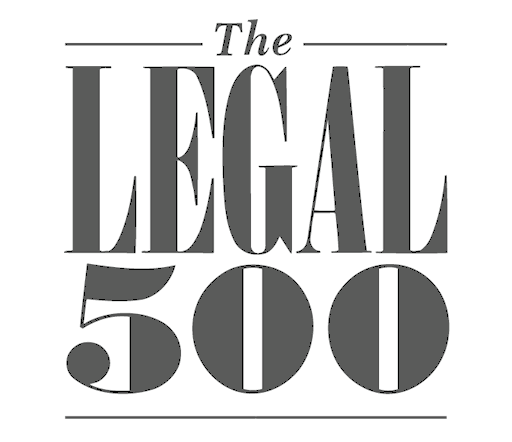Publications
Application for “Revision” of an Arbitral Award Rejected
Simon Gabriel;
in: dRSK, 05.01.2022
Commentary on Swiss Federal Tribunal decision 4A_422/2021 on October 14, 2021
Article 190a of the Swiss PILA, as in force since 2021, governs the legal remedy of the so-called «revision». Compared with an (ordinary) setting aside application according to Article 190.2 PILA, the legal remedy of the revision has distinct requirements and time limits to be observed. In the present case, the Swiss Federal Tribunal rejected an application for revision as manifestly inadmissible.
I. Background
[1] In international arbitration proceedings with seat in Geneva (Switzerland), a dispute in connection with a share transaction was decided under the auspices of the Swiss Arbitration Centre (under its former name of Swiss Chambers’ Arbitration Institution; sec. 1).
[2] The English company B had sold shares and participation certificates of the Swiss company C to the Swiss resident A (sec. 1).
[3] By final award dated 29 October 2020, the arbitral tribunal ordered that B was to receive an amount of CHF 1’130’917 against (re)transfer of 500 shares and 200 participation certificates of the Swiss company C (sec. 1).
[4] The final award was not challenged in setting aside proceedings pursuant to Article 190.2 Swiss Private International Law Act («PILA») within the applicable time limit of 30 days as from the formal notification of the award (sec. 1).
[5] Only several months later, on 3 September 2021, A filed an application for revision according to Article 190a PILA with the Swiss Federal Tribunal. At the same time, A filed procedural requests for ex parte (super-provisional) measures and suspensive effect for the application (sec. 2).
[6] On substance, A argued that the two legal counsel of B had been in a conflict of interest since October 2019 and were, therefore, not in a procedural position to appear in the arbitration proceedings on behalf of B after that date (sec. 2).
[7] Specifically, A alleged that the legal counsel of B represented parties with conflicting interests by representing not only B, but also C (and its subsidiaries) as well as C’s former board members E and F (sec. 4).
[8] As evidence for these allegations, A submitted in particular the following (sec. 4):
[9] First, a letter of 15 October 2019 that E, who was then a member of both B’s and C’s board of directors, sent, allegedly with the assistance of one of the two counsel at issue, to the association D in order to complain about certain actions of A. [10] Second, a request for super-provisional and provisional measures against A filed by E and F on behalf of C (and its subsidiaries) on 8 October 2019 which had been drafted by the two mentioned counsel.
II. Decision
[11] The Swiss Federal Tribunal confirmed first of all that it was in principle competent to hear applications for revisions under the new Article 190a of the PILA (sec. 4.3).
[12] It further confirmed that a party may seek review of an award after it was rendered, if the party discovers relevant facts or conclusive evidence that it was unable to rely on in the previous arbitration proceeding despite having exercised due diligence. Facts or evidence that only came into existence after the date of the award are excluded (sec. 4.4).
[13] Specifically, the Swiss Federal Tribunal named the five individual conditions that must be fulfilled under the pertinent ground for revision (sec. 4.4.1):
- Allegation of one or more facts.
- The alleged facts must be material to the outcome of the case. This is the case if they modify the factual basis of the award in the sense that the correct application of the law on the (modified) facts leads to a different legal solution and thus to a different award.
- The relevant facts already existed at the time when the award was rendered.
- The relevant facts were only discovered at a later point in time («après coup»).
- The applicant was not in a position – in spite of all his diligence («malgré toute sa diligence») – to rely on these facts during the arbitration proceedings.
[14] Furthermore, the Swiss Federal Tribunal also confirmed that there is a relative time limit for the revision of 90 days as from the discovery of the relevant fact. Discovery in that legal sense means knowledge of the new facts, in order to be able to invoke them, even if the applicant is not in a position to prove them with certainty. A mere supposition is, however, not enough to trigger the start of the time limit (sec. 4.4.2).
[15] The application of this test in the present case was apparently straightforward. The applicant A admitted that E already during the arbitral hearing on 13 March 2020 testified that one of the legal counsel had assisted in drafting the letter of 15 October 2019 (sec. 4.5).
[16] A, during the arbitration proceedings, apparently never raised any issues of conflict of interest of B’s legal counsel even though at least some of their relevant actions must have been evident from E’s testimony. In consideration of these circumstances, the Swiss Federal Tribunal rejected the application for revision as manifestly inadmissible – be it as being belated or be it because the relevant facts were not discovered at a later point in time in the legal sense («après coup»; sec. 4.5).
[17] Finally, the Federal Tribunal also noted for the sake of completeness that A, in any event, failed to demonstrate how the alleged disqualification of B’s counsel to make submissions in the arbitration would have modified the factual basis of the award.
[18] Consequently, A’s application for revision was rejected as inadmissible and A’s further procedural requests were considered as being moot in light of the decision.
III. Comments
[19] The legal remedy of the revision has already existed on the basis of the jurisprudence of the Swiss Federal Tribunal before the reformed Swiss lex arbitri (12th Chapter of the PILA) came into force in 2021. But only since 2021 has the revision been expressly codified as follows:
«1 A party may request a review of an award if:
a. it has subsequently become aware of significant facts or uncovered decisive evidence which it could not have produced in the earlier proceedings despite exercising due diligence; the foregoing does not apply to facts or evidence that came into existence after the award was issued;
b. criminal proceedings have established that the arbitral award was influenced to the detriment of the party concerned by a felony or misdemeanour, even if no one is convicted by a criminal court; if criminal proceedings are not possible, proof may be provided in some other manner;
c. a ground for a challenge under Article 180 paragraph 1 letter c only came to light after conclusion of the arbitration proceedings despite exercising due diligence and no other legal remedy is available.
2 The request for a review must be filed within 90 days of the grounds for review coming to light. A review may not be requested more than ten years after the award becomes legally binding, except in the case of paragraph 1 letter b.»
(Art. 190a PILA)
[20] The present decision of the Swiss Federal Tribunal allows two conclusions:
[21] First, the revision is more than a theoretical concept. It is a legal remedy with very specific requirements that is available for having awards reviewed in addition to the ordinary setting aside application of Article 190.2 PILA.
[22] With an absolute time limit of ten years (which does not even apply in cases of criminal behaviour) and a relative time limit of 90 days as from the discovery of the relevant ground, it covers a far longer period of time than the setting aside application (30 days as from the notification of the award).
[23] Second, the requirements for a successful revision are applied in a strict manner by the Swiss Federal Tribunal and are difficult to meet in practice.
[24] It remains to be seen whether the number of applications for revision will increase in the years to come with a view to the new and express legal basis in Article 190a PILA.
[25] For parties and counsel, the legal remedy of the revision means that it may be premature to close an arbitration file 30 days after an award was rendered. Particularly in high-value disputes, it can be expected that unsuccessful parties will use every chance for a second bite at the apple.
[26] For arbitrators, it could mean that the point in time when they are definitely «functi officio» may be (far) later than it is usually understood. In the author’s view this does not mean that arbitrators still need to treat the case as pending, but it may be wise to keep the files and any personal notes on the case beyond the 30 days time limit for the ordinary setting aside proceedings.





